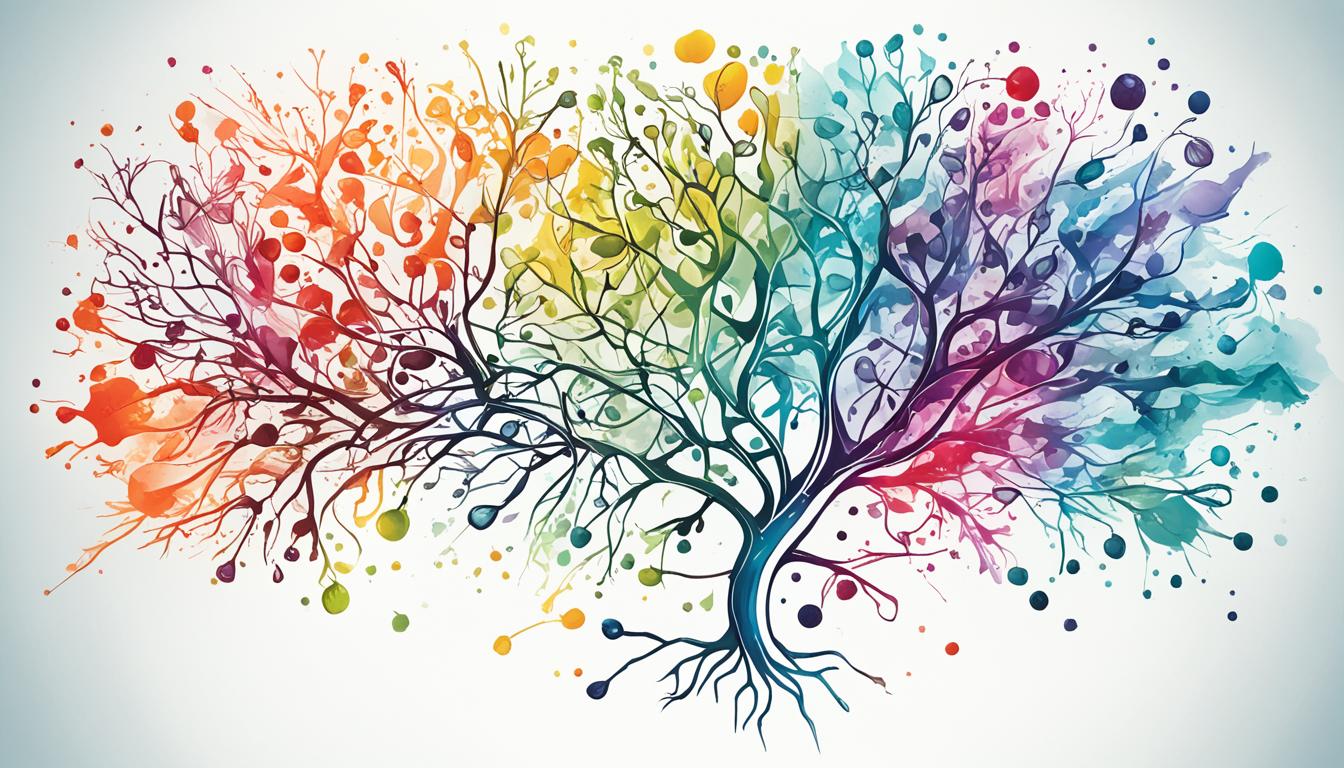In today’s fast-paced world, the importance of achieving fitness and hormonal balance is paramount. These elements are deeply connected and crucial for your overall health. Hormonal health and fitness are interdependent, impacting not just your physical state but also your mental and emotional well-being. Exercise is a powerful tool for optimizing hormones, helping to stabilize hormonal levels and improve your quality of life.
By making lifestyle changes such as regular physical activity and a balanced diet, you can enhance your hormonal health. This leads to a more vibrant and energetic you. The following sections will explore the key components that contribute to achieving and maintaining this vital balance.
Key Takeaways
- Achieving fitness and hormonal balance is essential for overall health.
- Lifestyle changes like regular exercise can help regulate hormone levels.
- Both physical activity and a balanced diet are crucial for optimal hormonal health.
- Hormonal imbalances can lead to various health issues, underscoring the need for balance.
- Understanding the connection between fitness and hormonal well-being can empower better health choices.
The Importance of Hormones in Your Overall Health
Understanding the role of hormones in your body is crucial for optimal health and fitness. Hormones act as chemical messengers, coordinating various physiological functions. They regulate metabolic processes and influence mood, significantly impacting your overall health.
Understanding Hormones as Chemical Messengers
Hormones are vital chemical messengers in the endocrine system. They manage functions like blood sugar levels, blood pressure, and metabolism. An imbalance can lead to health issues, affecting fertility and emotional state. Women often experience more hormonal shifts, causing mood swings, anxiety, and irritability.
Managing these hormonal changes involves healthy lifestyle choices. This includes a focus on diet and exercise to reduce the physical and mental effects of these shifts.
How Hormones Affect Mental, Physical, and Emotional Well-being
Hormones also play a key role in mental and emotional well-being. They affect your mood, anxiety levels, and mental health. For instance, exercise boosts dopamine levels, reducing stress and depression.
Many face conditions like insomnia, which can be improved with lifestyle changes, including exercise. This enhances sleep quality and raises serotonin levels. Incorporating various fitness activities supports hormonal balance and overall health.
Fitness and Hormonal Balance
Regular exercise profoundly impacts hormone regulation, enhancing your overall well-being. Different physical activities boost hormone balance, making you feel more energetic and in charge of your health.
The Role of Exercise in Hormonal Regulation
Exercise is vital for managing hormones like insulin, cortisol, and testosterone. It improves insulin sensitivity, aiding your body in efficiently storing and using energy. This balance helps prevent weight gain and metabolic problems. Studies show that aerobic exercise benefits sex hormone levels in premenopausal women, promoting a healthier hormonal state.
Types of Fitness Activities that Support Hormonal Balance
Various fitness activities can improve hormonal balance. The best exercises include aerobic workouts, strength training, and high-intensity interval training (HIIT). HIIT workouts offer a powerful cardio session in just 10 to 20 minutes, burning calories like a longer session. Yoga and resistance training enhance physical and mental health by lowering stress, maintaining a healthier hormonal balance.
To achieve a balanced lifestyle, combine these activities. Regular exercise leads to better hormone management, improving your quality of life. For more insights, explore natural hormone balance to support your fitness goals.
Nutrition for Hormonal Health
Your diet is crucial for maintaining hormonal balance. It’s essential to focus on protein and fiber intake for hormonal health. A high-protein diet boosts hormone production and regulates appetite hormones. Experts suggest 15–30 grams of protein per meal for the best high-protein diet benefits. This can lead to increased levels of PYY and GLP-1, making you feel full and aiding in weight loss.
High-Protein Diet and Hormone Production
Adding lean meats, eggs, dairy, and legumes to your meals can balance your hormones. Protein is key, especially at breakfast, as it helps you feel full all day. This can aid in weight loss, improve insulin sensitivity, and lower diabetes and heart disease risks.
Benefits of Fiber-rich Foods for Gut Health
Fiber-rich foods and gut health are vital for hormone regulation. Eating more fruits, vegetables, whole grains, and legumes supports healthy gut bacteria and hormone balance. Healthy gut bacteria affect hormone secretion, enhancing overall well-being. Cutting down on added sugars and eating more fiber prevents obesity and insulin resistance, boosting metabolic and hormonal health. Diversify your meals with fiber sources to support optimal hormone function. For more information on nutrition and its benefits, visit this resource.

Essential Exercise Strategies for Hormone Balancing
Engaging in the right types of exercise is key to achieving hormonal balance. Focus on effective fitness for hormone health by including strength training, cardio, and flexibility training in your routine. This holistic approach not only supports your overall health but also aids in balancing hormones.
Effective Workouts for Hormonal Health
When targeting hormonal balance, hormone balancing exercises such as high-intensity interval training (HIIT) can be beneficial. HIIT workouts effectively boost human growth hormone (HGH) levels, enhance metabolism, and improve insulin sensitivity. Incorporating strength training routines that focus on major muscle groups—like squats, deadlifts, and bench presses—stimulates testosterone production, essential for muscle growth and overall hormone health.
How to Incorporate Strength Training and Cardio
Integrate strength training with your cardio workouts for balanced hormone production. Activities like brisk walking, jogging, or cycling complement strength training by increasing dopamine and serotonin levels, promoting relaxation and elevating your mood. Regular participation in these exercises can mitigate stress and improve sleep quality, ultimately leading to better hormonal function.
For comprehensive guidance on establishing a balanced fitness regimen, consider exploring resources on effective workouts that fit your lifestyle. Recovery is equally critical in maintaining hormonal balance, so ensure to include rest days in your routine to allow your body to recuperate and support overall well-being.
The Impact of Stress on Hormonal Balance
Stress can profoundly alter your hormonal equilibrium, especially by boosting cortisol levels. This hormone is vital for managing stress. When you face stress, your body triggers the “fight or flight” response, releasing cortisol and other stress hormones. This can lead to significant health problems, affecting both your physical and mental health.
Understanding Cortisol and its Effects
Cortisol is essential for handling stress. However, high levels can disrupt various bodily functions, including your digestive and reproductive systems. This imbalance can result in obesity and insulin resistance. A DUTCH test can reveal how excessive cortisol affects your hormone balance.
Stress Reduction Techniques and Their Benefits
Effective stress management techniques are crucial for your hormonal health. Spending 20 minutes in nature daily can lower cortisol and improve your well-being. Exercise also shapes your neuroendocrine system, aiding in stress adaptation.
Activities like yoga, meditation, and deep breathing promote relaxation and balance. Getting seven to eight hours of quality sleep each night is vital for stress management. It prevents sleep deprivation from raising cortisol levels. Setting clear goals and finding purpose can also enhance mental health and reduce stress.
Maintaining a Healthy Weight
Keeping a healthy weight is crucial for your overall health. Obesity often stems from hormonal imbalances, leading to insulin resistance and increased hunger. It’s key to understand how your body responds to different stimuli for lasting weight loss.
Connection Between Obesity and Hormonal Imbalances
Studies show obesity affects hormone levels, including insulin, leptin, ghrelin, and cortisol. High cortisol levels, caused by stress and poor sleep, make managing weight harder. These hormonal shifts not only cause weight gain but also perpetuate obesity and hormonal imbalance.
For instance, too much body fat can raise estrogen levels, increasing the risk of chronic diseases. Knowing these links helps you make better choices to balance your hormones.
Weight Loss Strategies for Hormonal Balance
Effective weight loss strategies can help balance your hormones. Focus on a diet full of whole foods like fruits, vegetables, and whole grains. Eating low-glycemic carbs boosts insulin sensitivity, aiding in weight management.
Regular exercise is also vital. It improves insulin sensitivity and lowers leptin levels, promoting hormonal balance. Consider omega-3 supplements for metabolic challenges. A Mediterranean diet, low in saturated fats, can also help stabilize insulin levels.
Don’t forget the importance of quality sleep. Poor sleep disrupts hormonal balance, raising ghrelin levels and increasing hunger.
Gut Health and Its Role in Hormonal Regulation
Understanding the link between gut health and hormone regulation is key to overall well-being. The gut microbiome is vital in managing hormones, affecting everything from appetite to metabolic functions. Gut bacteria and hormones work together, with microbes producing metabolites that can either support or disrupt hormonal balance.
How Gut Bacteria Influence Hormonal Levels
Poor gut health is linked to hormonal issues like hormonal acne, PCOS, and even breast and ovarian cancer. The human gut is home to trillions of microbes, forming a diverse community known as the gut microbiota. Research shows that diets high in total fats can harm gut microbiota richness and diversity, affecting gut health and hormone regulation.
Tips for Maintaining a Healthy Gut Microbiome
Keeping the gut microbiome healthy is crucial for proper hormone regulation. Aim for 30 to 35 grams of fiber daily, but only about 5% of Americans do. Include probiotic-rich foods like yogurt and fermented foods in your diet. Reducing sugar intake helps minimize inflammation and supports a healthier gut. Also, ensure 7-8 hours of sleep nightly and incorporate regular exercise to improve gut blood flow, avoiding high-impact activities that may cause inflammation.

Sleep’s Influence on Hormonal Function
Good quality sleep is crucial for optimal hormonal balance. It significantly impacts various bodily processes. Hormones like cortisol, insulin, and melatonin are closely tied to your sleep patterns. Lack of sleep can disrupt these balances, affecting stress levels and hunger cues. Recognizing the importance of good sleep helps you make choices that support your hormonal health.

The Importance of Sleep Quality for Hormones
Aiming for 7 to 9 hours of sleep each night is key to hormonal equilibrium. Not getting enough sleep can raise cortisol levels, throwing off the balance between estrogen and progesterone. This imbalance may lead to weight gain and cognitive impairment. Research links short sleep to obesity risks, underscoring the need for prioritizing sleep quality for hormonal health.
How to Improve Your Sleep Habits
Improving sleep habits can significantly boost your health. Begin with a consistent sleep schedule, setting regular bedtime and wake-up times. Cutting down on screen time before bed, keeping your bedroom cool, and relaxing before sleep also helps. If sleep issues persist, consulting professionals can offer personalized advice to better your sleep.
Conclusion
Achieving fitness and hormonal balance is a journey that requires a holistic approach. This journey includes various lifestyle factors. We’ve explored the significance of natural ways to balance hormones like regular exercise, proper nutrition, stress management, and maintaining a healthy weight. These strategies are interconnected, optimizing your hormonal health.
Research shows that for women, especially in postmenopausal stages, aerobic activities can greatly impact hormonal balance and well-being. A study with 60 women found that exercise improved hormone levels and reduced symptoms of depression. This highlights the critical role of fitness and nutrition in supporting hormonal balance.
Moreover, focusing on gut health and quality sleep is vital for efficient hormonal function. By adopting a lifestyle that encompasses these elements, you’re on the path to better fitness and hormonal balance. This approach not only enhances your health but also improves your life quality. It’s important to seek natural ways to balance hormones and prioritize your health through a mindful lifestyle.
FAQ
How does fitness contribute to hormonal balance?
What types of workouts are best for hormonal health?
How important is nutrition for maintaining hormonal health?
What role does stress play in hormonal balance?
How does weight affect hormonal levels?
What are some effective tips for maintaining gut health related to hormones?
How does sleep influence hormone production?
Source Links
- How to balance hormones naturally: 11 ways – https://www.medicalnewstoday.com/articles/324031
- 10 Ways to Balance Your Hormones Naturally – https://www.health.com/how-to-balance-hormones-8623896
- Hormones’ Role on Our Health, and Wellness – https://weillcornell.org/news/hormones’-role-on-our-health-and-wellness
- Here Are Ways Exercise Helps Balance Hormones – https://www.piedmont.org/living-real-change/how-exercise-helps-balance-hormones
- Effect of physical activity on sex hormones in women: a systematic review and meta-analysis of randomized controlled trials – https://www.ncbi.nlm.nih.gov/pmc/articles/PMC4635995/
- How Does Exercise Affect Your Hormones? – https://www.mariongluckclinic.com/blog/how-does-exercise-affect-your-hormones.html
- Top Strategies to Balance Hormones & Lose Weight Effectively — Chiropractic Care in Johnston Iowa – https://www.claritychirotrt.com/blog/top-strategies-to-balance-hormone-and-lose-weight-effectively
- 10 Natural Ways to Balance Your Hormones: Diet Tips and More – https://www.healthline.com/nutrition/balance-hormones
- Nutrition and Impacts on Hormone Signaling – https://www.ifm.org/news-insights/nutrition-impacts-hormone-signaling/
- How to Balance Your Hormones With Exercise – https://www.byrdie.com/exercise-to-balance-hormones
- The Best Exercises For Hormone Balance and Fertility – https://rescripted.com/posts/the-best-exercises-for-hormone-balance-and-fertility
- Stress & Hormone Imbalance – How Stress Impacts Our Hormones – https://www.mariongluckclinic.com/blog/stress-and-hormone-imbalance-how-to-prevent-stress-from-impacting-your-hormones.html
- Hormonal adaptation and the stress of exercise training: the role of glucocorticoids – https://www.ncbi.nlm.nih.gov/pmc/articles/PMC5988244/
- 9 Hormones That Affect Weight — and How to Improve Them – https://www.healthline.com/nutrition/9-fixes-for-weight-hormones
- Hormones And Weight Gain: How To Fix The Hormones That Control Your Weight | OBGYN Associates Of Alabama – https://obgynal.com/hormones-and-weight-gain/
- The Top 7 Ways to Improve Your Gut Health for Healthy Hormones, – https://www.plateandcanvas.com/how-to-improve-your-gut-health-for-healthy-hormones
- Relationship between gut microbiota and host-metabolism: Emphasis on hormones related to reproductive function – https://www.ncbi.nlm.nih.gov/pmc/articles/PMC8110851/
- How to Balance Hormones: Gut Health and Lifestyle Changes – https://drruscio.com/how-to-balance-hormones/
- Your Hormones May Be the Key to Getting a Solid Night’s Sleep. Here’s How – https://www.healthline.com/health/sleep/how-sleep-can-affect-your-hormone-levels
- Role of Sleep and Sleep Loss in Hormonal Release and Metabolism – https://www.ncbi.nlm.nih.gov/pmc/articles/PMC3065172/
- The Impact of Sleep and Circadian Disturbance on Hormones and Metabolism – https://www.ncbi.nlm.nih.gov/pmc/articles/PMC4377487/
- Aerobic exercise with diet induces hormonal, metabolic, and psychological changes in postmenopausal obese women – https://www.ncbi.nlm.nih.gov/pmc/articles/PMC8971591/
- Cardio exercise and strength training affect hormones differently – https://www.sciencedaily.com/releases/2018/08/180824101138.htm
- The Crucial Role of Hormones in Athletic Performance – Sports Medicine Weekly By Dr. Brian Cole – https://www.briancolemd.com/blog-post/blog/the-crucial-role-of-hormones-in-athletic-performance/


